BSOS Welcomes New Faculty Members
The College of Behavioral and Social Sciences is pleased to welcome a number of talented new faculty members at the start of the 2021–22 academic year.
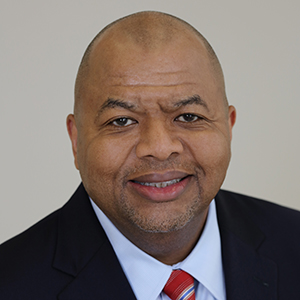 The Department of Criminology and Criminal Justice (CCJS) welcomes Professor Rod K. Brunson to the faculty. Professor Brunson’s research informs criminal justice policy and crime control practices.
The Department of Criminology and Criminal Justice (CCJS) welcomes Professor Rod K. Brunson to the faculty. Professor Brunson’s research informs criminal justice policy and crime control practices.
He is a world-renowned scholar on police-community relations. His research and teaching focuses on how concentrated neighborhood disadvantages are linked to criminal violence in America. In the fall, Professor Brunson will teach a course on police-community relations.
Professor Brunson comes to Maryland from Northeastern University, where he served as the Thomas P. O’Neill Jr. Chair of Public Life; professor of criminology and criminal justice and of political science; and director of graduate mentoring and diversity initiatives within the College of Social Sciences and Humanities. He is also a Fellow of the American Society of Criminology.
Brunson’s scholarship appears in numerous publications, including Criminology and the Journal of Research, Crime and Delinquency.
Professor Brunson holds a Ph.D. in Criminal Justice from the University of Illinois at Chicago, with a concentration in Criminology.
 Dr. Brooklynn Hitchens joins CCJS as an assistant professor after recently completing a postdoc in the department in 2021. She is a sociologist and critical criminologist who studies race, class and gender in crime and victimization, urban violence and trauma, and urban policing.
Dr. Brooklynn Hitchens joins CCJS as an assistant professor after recently completing a postdoc in the department in 2021. She is a sociologist and critical criminologist who studies race, class and gender in crime and victimization, urban violence and trauma, and urban policing.
Using participatory action research methods, Professor Hitchens partners with communities of color to reduce racial disparities associated with urban violent crime and socioeconomic opportunity. Her work is primarily qualitative, through the use of ethnography, interviews, and focus groups—and she also utilizes mixed methods.
Professor Hitchens is the co-project director of a multi-neighborhood research team studying violence, health, and opportunity in Wilmington, Del. She is also a project director of a five-site research team studying gun acquisition, use, and injury among “high-risk” Black youth ages 16 to 24 in Baltimore, Detroit, New York City, New Orleans, and Wilmington, Del. Hitchens advances scholarship that centers the lived experiences of marginalized Black Americans and elucidates how structural inequities shape disparate outcomes for that population.
She earned a B.A. from the University of Delaware, and an M.A. and a Ph.D. from Rutgers.
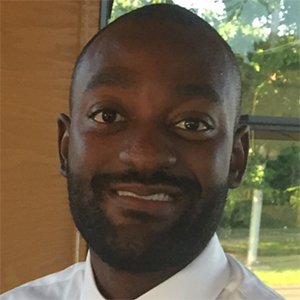 Dr. Marcus Johnson joins the Department of Government and Politics (GVPT) as an assistant professor of political science. He previously served as an assistant professor at the City University of New York, Baruch College, where he had served since 2018. Professor Johnson specializes in ethnicity, race, and electoral politics in the Americas.
Dr. Marcus Johnson joins the Department of Government and Politics (GVPT) as an assistant professor of political science. He previously served as an assistant professor at the City University of New York, Baruch College, where he had served since 2018. Professor Johnson specializes in ethnicity, race, and electoral politics in the Americas.
His work seeks to explain the conspicuous absence of racial appeals to voters in Latin America, despite the increasing visibility and social salience of Black identity in the region. In his current research, Professor Johnson examines land grabbing against Afro-Latin Americans in conflict environments.
Professor Johnson’s approach to teaching seeks to move course content closer to the interests and perspectives of a diverse student population by incorporating underrepresented voices in the mainstream debates in political science. He has a diverse set of teaching experiences that span from an associate degree program in a youth correctional facility in Trenton, N.J., to more traditional university classroom settings.
During the 2017–18 academic year, Professor Johnson held the President’s Postdoctoral Fellowship at the University of Maryland. He is also a graduate of the BSOS Summer Research Initiative. He holds a Ph.D. from Princeton University.
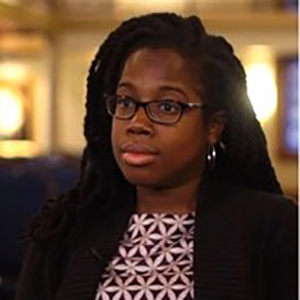 Dr. Chryl Laird joins GVPT as an assistant professor of political science. She previously held the position of assistant professor of government and legal studies at Bowdoin College.
Dr. Chryl Laird joins GVPT as an assistant professor of political science. She previously held the position of assistant professor of government and legal studies at Bowdoin College.
Professor Laird studies American politics with specializations in race and ethnic politics and in political psychology.
Her book (with Ismail White), “Steadfast Democrats: How Social Forces Shape Political Behavior” (Princeton University Press) examines how Black partisanship to the Democratic party is maintained through social networks and political norms. The work won the 2021 Best Book Award by the American Political Science Association.
Her research and commentary has been featured on a number of media outlets including The New York Times, The Washington Post, NPR, The Atlantic, and FiveThirtyEight. Dr. Laird is an award-winning lecturer who has taught the following courses: Race, Ethnicity and Politics, Urban Politics, Women of Color in Politics, and Public Opinion and Voting.
Professor Laird holds a B.A. in African American Studies and a B.A. in Government and Politics from UMD, and an M.A. and a Ph.D. in Political Science from Ohio State University.
The College of Behavioral and Social Sciences and MLAW Programs are pleased to welcome Brian Gilmore as Senior Lecturer, beginning in the Fall of 2021.
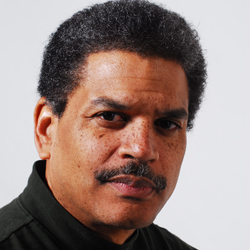 Recently, Professor Gilmore served as a clinical associate professor and director of the Housing Clinic at Michigan State University College of Law.
Recently, Professor Gilmore served as a clinical associate professor and director of the Housing Clinic at Michigan State University College of Law.
Previously, he worked at the Howard University School of Law in Washington, D.C., where he served as a clinical professor and supervising attorney with the Clinical Law Center from 2005 through 2010. While at Howard University, Professor Gilmore developed and initiated the Fair Housing Teaching Program for the Clinical Law Center, organized programs to educate local constituents and community advocates on ever-relevant legal topics, taught Introduction to Lawyering Process for Education Administrators, and served as a guest lecturer in Professional Responsibility and Pre-Trial Litigation courses. He also designed and taught Housing Law and the Public Interest.
Professor Gilmore spent 15 years in practice, working for Neighborhood Legal Services Program, Washington Legal Clinic for the Homeless, and Robert Ades and Associates.
He has approximately 40 published works to his credit, including law review articles, legal articles, commentary, reviews, and contributions to books, essays, anthologies, and encyclopedias. His works have appeared in the Washington Post, Book Forum, ABA Journal of Affordable Housing and Community Development Law, the Nation, the Baltimore Sun, and the Utne Reader.
A respected legal expert in the area of housing, Professor Gilmore has delivered more than 25 panels, workshops, lectures, and presentations before a wide range of audiences.
Professor Gilmore holds a J.D. from the University of the District of Columbia David A. Clarke School of Law, and a B.S. from Frostburg State University.
The College of Behavioral and Social Sciences and the Department of African American Studies are pleased to welcome Lecturer and Director of Undergraduate Studies Ashley Newby.
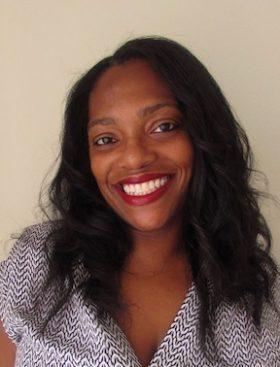 Dr. Newby completed her doctoral degree in African American and African Studies at Michigan State University in 2016. She earned her M.A. in Sociology of Education from New York University, as well as a B.A. in Social Relations and Policy, and a B.A. in International Relations from Michigan State University.
Dr. Newby completed her doctoral degree in African American and African Studies at Michigan State University in 2016. She earned her M.A. in Sociology of Education from New York University, as well as a B.A. in Social Relations and Policy, and a B.A. in International Relations from Michigan State University.
Previously, Dr. Newby served as a lecturer at the University of California, Los Angeles. Prior to that, Dr. Newby taught for three years in the Program in Writing and Rhetoric at Stanford University, working with both the Leland Scholars and Pre-Collegiate Studies programs.
Her research interests lie at the intersection of Hip-Hop culture and educational spaces, particularly critical literacy and culturally sustaining pedagogies. Her publications include the chapters “The Rhetoric of the Womb” in the The Lauryn Hill Reader (Peter Lang Publishing, 2018), and “Hip-Hop is Not a Metaphor” in In This Together: Blackness, Indigeneity, and Hip-Hop (DIO Press, 2019).
BSOS and the Department of African American Studies are also pleased to welcome Dr. Chinyere Osuji as a Visiting Associate Professor.
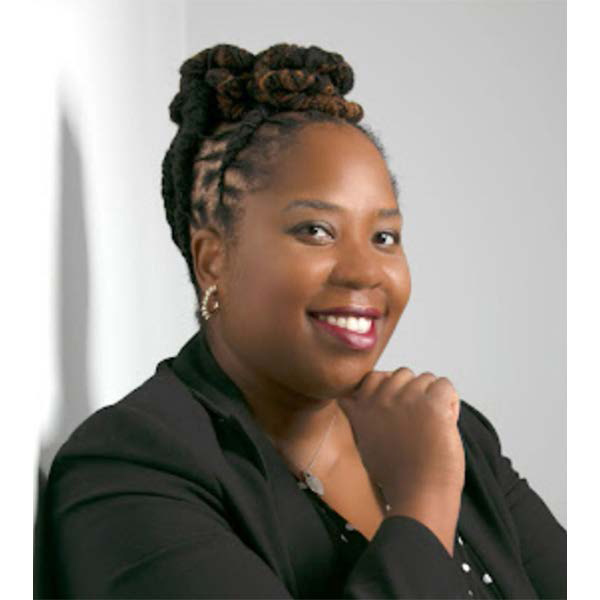
Her research examines how Africans and Afro-descendants negotiate ethnic and racial boundaries and its implications for justice and equity.
Her first book, "Boundaries of Love: Interracial Marriage and the Meaning of Race" (NYU Press, 2019) compares how Black-White couples in Brazil and the United States understand and negotiate racial boundaries. The book relies on over 100 interviews with Black-White couples in the United States and Brazil to compare how national ideologies, gender and other social categories yield particular meanings of race and race-mixing.
She is currently conducting interviews with first and second-generation African immigrants in the nursing profession to understand ethnoracial boundaries and white supremacy in the nursing profession from a critical and intersectional perspective. This project will provide a new lens to understand the racial politics of healthcare and the role of nursing in addressing health inequalities—issues made more salient with the COVID-19 pandemic.
Dr. Osuji’s research has won awards from the Population Association of America and the American Sociological Association Section on Racial and Ethnic Minorities.
Published on Fri, Jul 30, 2021 - 9:54AM



